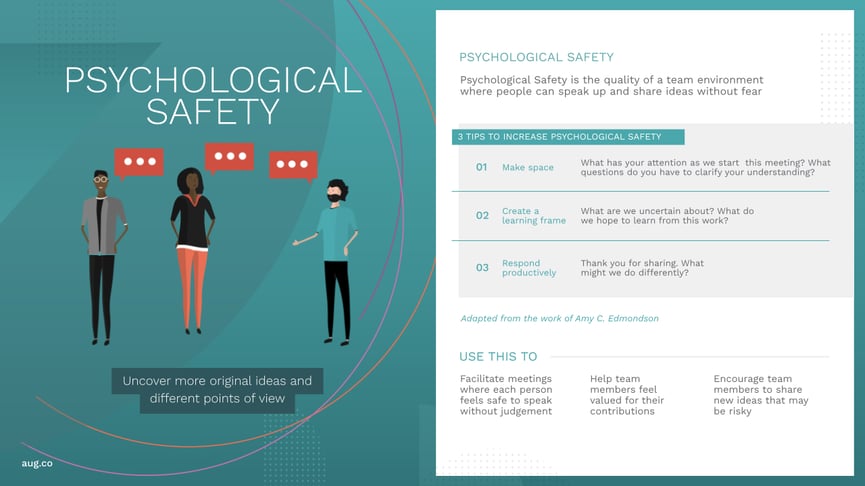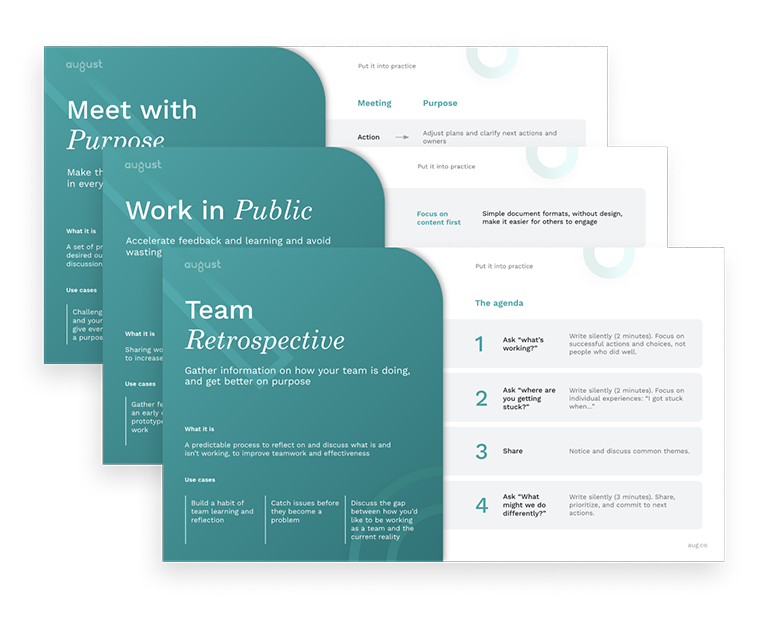Published February 23, 2021 | Updated August 17, 2024 | 4 minute read
In 2020, leaders were reminded that asking the right question can be more valuable than having the right answer. For many people 2020 was one of the most difficult years of their life. Personal and professional hardship collided, impacting our work lives in ways we couldn’t have imagined. Effective leaders leaned on their empathic skills, focusing on how to create space for team members to speak up and feel heard. We learned that good leadership depends on helping the team to listen and learn together.
What did 2020 reveal about what is possible?
The hardship of 2020 required teammates to listen and try to understand each other beyond day-to-day work tasks in a new way. We learned about many different care-giving challenges - children, partners, aging parents, and others. We got a crash-course in online education. We became virtual guests in each other’s homes. And we dealt with loss, grief, anger, and depression.
As teams found their way through this, thinking perhaps that this “emotional” work was a distraction from their “real” work, they were actually building a capacity that is at the core of great business performance. Teams cultivated environments where people can speak up and share ideas - even risky or challenging ideas - without fear.
We saw leaders show up in a new way. Leaders focused on what the team was trying to learn, even over what they had to do. Leaders asked questions that sparked curiosity and inspired creativity. Leaders held space so that people with different, and even dissenting perspectives could be heard.
This ability to speak up is essential when we face our most challenging moments together. When personal difficulties made it hard to contribute in the same ways we were used to. When economic disruption made business-as-usual impossible. When we needed to help each other just get through the next week, the next day, or the next meeting. These were the moments when courage was critical.
When our team’s success depends on someone sharing a thought or idea that might be hard for others to accept or understand – they must feel able to speak up, and we must be able to listen. Our teammates feel heard. And we learn and respond together.
Putting it Into Practice
A national nonprofit organization that provides health care services was already facing significant headwinds before the arrival of the COVID-19 pandemic. And, as an organization that is committed to providing equitable access to health care for all people, the organization was deeply affected by the 2020 protests for racial justice.
Even as the needs of the patients and communities they served increased, leaders in the organization recognized that it was critically important to foster a culture where everyone could speak up with their ideas, listen deeply to each other, and learn together through a turbulent time.
August worked with this partner to quickly create and deliver a set of trainings focused on Psychological Safety and leading through change with empathy. These skills supported the organization in navigating the unique challenges of 2020 with humanity.
Getting Started
A specific practice that helps to cultivate this culture of speaking up is called Psychological Safety. Amy Edmondson, Harvard Business Professor, author, and August advisor, has been researching Psychological Safety for decades and is globally recognized as the leading authority on the subject. Edmondson defines Psychological Safety as: “a belief that one will not be punished or humiliated for speaking up with ideas, questions, concerns or mistakes.”
Psychological Safety is a team-based phenomenon that enables teams to learn together, take smart risks, and navigate complex and challenging situations. A 2012 internal research study conducted by Google* found that Psychological Safety is the single most important contributing factor for team effectiveness.
Contrary to what some people assume when they hear the term, Psychological Safety does not mean seeking comfort and avoiding conflict. In fact, in a truly psychologically safe team there can be more candor, and even conflict - but it is in service of the team’s work together and results in deeper respect and trust among team members.
Psychological Safety is something that we create for each other. And leaders have an especially important role to play. If you want to increase Psychological
Safety within the teams you are a part of, try these behavior shifts:
- Intentionally seek out different perspectives by asking “Who has an alternative idea to share?”
- Remind people what you are trying to learn together, “Remember, here’s what we don’t know, and are trying to find out…”
- When others share a challenging or risky idea, start by thanking them and reinforce that uncomfortable ideas can be valuable.

This is #3 of 5 shifts in our Playbook: New Ways of Working for 2021 and Beyond. Check out the rest of the practices here:


.jpg)







